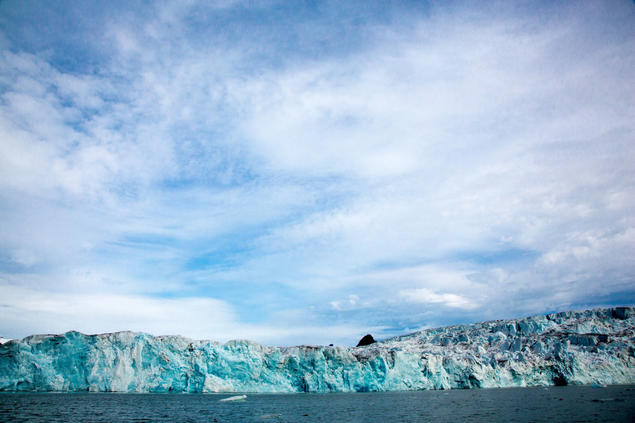FNI awarded fresh funding

Three new research projects to receive RCN funding
Last week, the Research of Council of Norway (RCN) announced the latest round of research grants. ‘With this renewed support, FNI consolidates its position as Norway’s premier research institute on High North politics’, notes senior researcher Andreas Østhagen, who himself is involved in two of the new projects slotted for RCN support. Our congratulations to everyone involved!
Challenges to Ocean Governance
The world’s oceans are increasingly in focus. Not least, how shall we manage resources at sea and settle border disputes are topics that create both conflict and cooperation between countries. In the OCEANGOV project, we compare ocean resource management in the Arctic, in the Black Sea and in the East China Sea. What creates conflict? How can we avoid conflict by applying the law of the sea framework? And how is the law of the sea changing as certain countries gain more and more power, as is the case with China?
Østhagen explains: ‘The aim of the OCEANGOV project is to continue FNI research on the linkages between international politics, resource management and the law of the sea. Building on our established Arctic expertise, we will collaborate with universities and research institutes in Australia, China, England, Korea and Romania, in addition to the High North Center at Nord University in Bodø. We’ve assembled a truly global team.‘
In addition, Østhagen and several other FNI researchers are involved in the new Nord University project China in the Arctic: External Influence on Regional Governance (ArcGov), which has also received NRC funding in this round.
‘Several of our new projects address the Arctic and its maritime boundaries, contributing to consolidate FNI as Norway’s foremost research institute on High North policy matters’, adds Østhagen.
Climate change in Russia’s Arctic
Adaptation responses to climate change differ greatly among states. For one thing, interpretations of climate change vary. A better understanding the reasons behind the choice of climate knowledge in decisions regarding Arctic developments can provide insight into the sustainability of economic and industrial strategies. Of particular interest is Russia, which views developing its Arctic zone – mainly involving resource extraction and associated maritime transport – as a cornerstone of its own economic future.
The three-year project Climate change in Russia’s Arctic: Perceptions, response, implications will investigate Russian perceptions and interpretations of climate change in the Arctic, as well as corporate responses in terms of policy and adaptive measures for industrial projects, and the consequences of the strategies chosen for economic development in the Russian Arctic. This project will be directed by Arild Moe and include Anna Korppoo and Erdem Lamazhapov at FNI, together with several research partners in Russia.
Land-use change and changing windpower governance
Moreover, Tor Håkon Jackson Inderberg and his team in the windpower project Land-use change and changing windpower governance: Process, practices and pressure (WINDGOV) have received confirmation of continued support for more years of research on the planning of windpower developments.
Windpower development has become an important priority in the ‘green shift’, but it creates considerable tension in local communities, with hefty debate on whether and where to erect the wind turbines. In this research project, FNI researchers will identify clashing interests and opinions, and look for ideas that can unite municipalities in creating support for windpower development
‘We aim to boost general knowledge on how to plan windpower projects, and how changes in planning can affect land-use pressures and the perceived legitimacy of wind power. The land-use pressures involved also impact issues of nature protection’, explains Inderberg.
The project will study planning arrangements and outcomes on legitimacy and land-use change –inter alia, mapping and describing the historical and recent land-use implications of windpower development, including for second or holiday homes. Unlike windpower planning, second-home development in Norway is regulated by the local authorities. This project builds on the results obtained from another ongoing FNI research project on windpower licensing in Norway, ‘Competing land-use pressures in Norway: Examining the integration of nature protection concerns in wind power licenses’, led by Lars Gulbrandsen, FNI research director for climate and energy studies.
‘The year 2020 ended as it started, with a nice sweep as regards RCN projects’, sums up FNI Director Iver B. Neumann, highly pleased with the situation after his first year in office at FNI.
